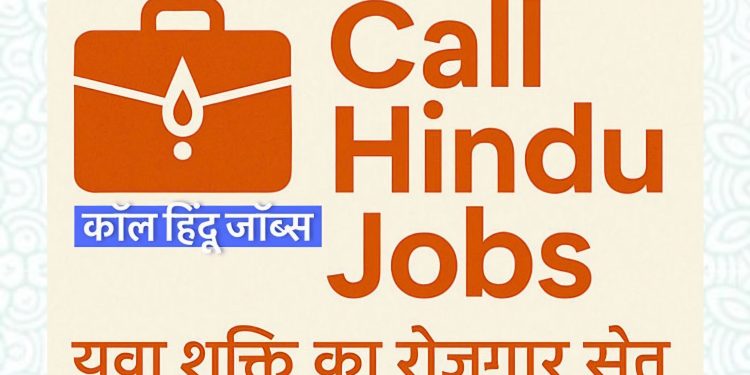By Shaikh Majid
A disturbing trend is emerging in India’s digital job market: several job portals and hiring platforms are reportedly filtering candidates based on religious identity, with explicit preferences for Hindu applicants. Phrases like “Hindu Samaj should be on top” and “Only Hindu candidates” are appearing in job listings, sparking outrage among civil rights advocates and social scientists who warn this is part of a growing pattern of economic exclusion targeting Muslims.
Investigations by independent journalists and watchdog groups reveal that some online recruiters are openly specifying religious preferences, often under the pretext of “cultural fit” or “company policy.” These practices not only contravene constitutional guarantees of equality and non-discrimination but also contribute to a broader climate of economic segregation.
“This isn’t happening in isolation,” said Dr. Amina Khan, a sociologist at Jamia Millia Islamia. “What we’re seeing is the institutionalization of an economic boycott of Muslims. These job filters are just one layer of a larger systemic effort to marginalize the community.”
The phenomenon coincides with rising instances of communal polarization, vigilante violence, and calls from some right-wing groups for Hindu-only economic ecosystems. These developments, critics argue, are emboldened by impunity and political silence.
Job seekers from Muslim backgrounds report a stark increase in rejections and silence from recruiters, even when qualifications match the requirements. “I was told directly by one recruiter that they weren’t considering Muslims because their clients wanted ‘cultural compatibility’,” said a software engineer from Bengaluru who requested anonymity.
Legal experts say such practices are not just unethical but also illegal under Indian law. “The Constitution prohibits discrimination on the basis of religion under Article 15. Private employers may not fall directly under this clause, but if platforms are complicit in promoting such biases, they too can be held accountable,” said Advocate Fahad Ansari, a human rights lawyer.
Despite the seriousness of these revelations, regulatory action remains minimal. The Ministry of Labour has yet to issue a formal statement, and platforms hosting such listings have been slow to respond, often citing the difficulty of moderating third-party content.
Activists warn that unless there is urgent intervention, the normalization of faith-based job discrimination could further entrench socio-economic divides. “It’s not just about jobs — it’s about livelihoods, dignity, and equal participation in the nation’s economy,” said Mehmood Pracha, a Delhi-based legal activist.
With unemployment already at critical levels, especially among youth, the weaponization of faith in hiring practices threatens to push marginalized communities further to the edge.






